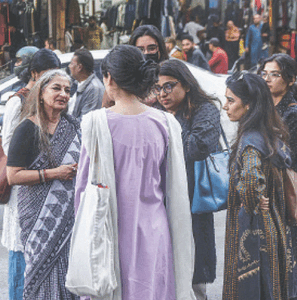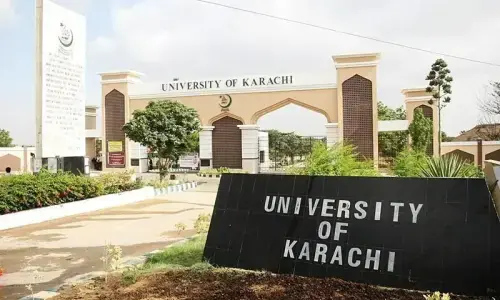KARACHI: Health authorities on Wednesday declared 11 more deaths from heatstroke in the city, while many hospitals started pulling off the special facilities which had been put in place for heatstroke patients as the number of cases came down since the end of the heatwave.
“We have recorded 11 more deaths in the city from heatstroke on Wednesday, while no report was received from other districts of Sindh about any further deaths,” said a senior official in the provincial health department.
With the latest addition, the death toll rose to 1,267 in Karachi and 101 elsewhere in the province since June 20 when the first heatstroke patients arrived at hospitals.
The figures received by the authorities concerned indicated that a significant number of victims were homeless or living in the ghettos. “Tens of thousands of heatstroke patients arrived at hospitals from across Karachi, but most of those who died had small stingy houses or no home at all,” said an official who went through the details about the patients provided by various hospitals.
He added that around half of the victims had their homes and families and most of them were aged 50 years or more.
The official said outages had aggravated the conditions for the people living in apartments or small houses with little exposure to fresh air. Many such neighbourhoods are included in what the power utility described as high-loss areas and specified for more loadshedding, he said.
Many of those living under the sky suffered dehydration and heatstroke as they did not find any way to tackle both in the month of fasting, health experts said.
“People have died not only from lack of ventilation in houses but also because of homelessness. You have no ventilation and electricity at home and you have no shelter outside,” said Dr Noman Ahmed, chairman of the architecture and planning department of the NED University of Engineering and Technology.
Emergency response centres
Dr Ahmed said when it was not possible to establish ‘cooling centres’ in Karachi as had been established in the developed countries, the administration should, by design, establish at least one emergency response centre in every large neighbourhood.
He said it was not just the K-Electric and the provincial government, which had failed to deliver but the very urban governance was in tatters. “Karachi Metropolitan Corporation (KMC) has failed in providing basic services. Apart from other things, it is supposed to provide and maintain parks and trees to people, but instead of planting more trees, the municipality is chopping off the existing ones in the metropolis,” he said.
He referred to several reports citing the ‘china cutting’ (illegal encroachment and subdivision) of amenity plots, mostly parks, and axing of grown-up trees by the mighty land grab mafia. “They are equally guilty of such widespread deaths in the city, as they denied people shelter as the power utility denied electricity when it was needed the most.”
Officials at various hospitals said the heatwave seemingly had ended yet patients affected by it were reaching the emergency departments. “A very few people are still coming our way. Most of them are elderly and belonging to the poor groups,” said a doctor at the Abbasi Shaheed Hospital.
The Jinnah Postgraduate Medical Centre and several other hospitals have pulled off additional facilities they had arranged during the emergency situation as they said the number of patients was too low to be handled by the routine staff at their emergency departments.
Published in Dawn, July 2nd, 2015
On a mobile phone? Get the Dawn Mobile App: Apple Store | Google Play


































